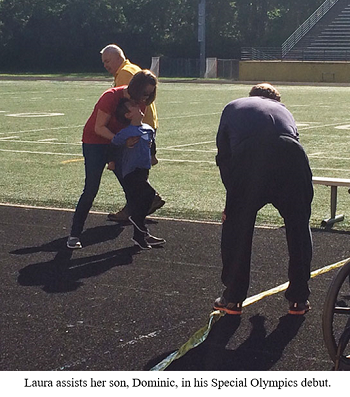ATD Blog
What We Can Learn About Mentoring From the Special Olympics
Mon Dec 11 2017


Having never been involved with the Special Olympics before, I was deeply moved by how supportive and enthusiastic the participants and spectators were toward all the athletes. But what really got me thinking was the Special Olympics oath.
“Let me win. But if I cannot win, let me be brave in the attempt.”
Wow. I admit, I teared up a little when I heard that. Of course we all want to win—it’s human nature to want to succeed. Unfortunately, we can’t all come in first place. But having these athletes acknowledge this and strive for courage when attempting to win is profound, especially given some of the physical limitations these individuals have.
It made me wonder what mentoring relationships would look like if we used a similar oath for them: Let me be brave in the attempt.
Can you imagine saying that to your mentee or mentor? What restrictions could you remove from yourself if you approached your relationship with the knowledge that you may fail, but you will still try? It could be groundbreaking.
Having the courage to admit your flaws, identify your weaknesses, pursue your hidden dreams, and tackle the things that scare you most can take a mentoring relationship to an entirely different level. My colleague and author of Modern Mentoring, Randy Emelo, says good mentoring is transformative mentoring—and I can see why. Mentoring, when done well, calls for us to be brave, to leave our comfort zones, and to attempt the things we don’t think we can do.
Mentoring relationships are one of the few places where you can be this bold and brave—where it should be expected of you, if you ask me. It can be hard to be daring in meetings with your manager, or during a performance review, or in the midst of a large staff meeting, but the same should not be said of interactions with your mentor. Your mentoring conversations should be when you push yourself and take a chance, because you know you are within a safe place that you and your mentor created together.
The point of mentoring is to improve yourself. As such, you should use your relationship as an opportunity to try new ideas, to make bold decisions, to take action even if you might fail. Your mentor will be there to help you and to support you. And if you’ve built a mentoring network, you will have even more people rallying around you and cheering you on. Don’t ignore this opportunity to be brave!
This bravery is not just limited to mentees, by the way. Mentors should also heed this call for bravery. Don’t shy away from talking about the difficult things that have happened in your work life (or personal life if it pertains). Show your mentee that you tried, you failed, you persisted, you succeeded—give them the whole picture. There likely will be many opportunities to stand by your mentee, support them in their development, and be a guiding influence to help them overcome their problem. This will have even more meaning if your mentee knows that you, too, have had to overcome difficult situations. They can learn from your past, so don’t be stingy in sharing it.
Regardless of what role you play, here are three guiding principles you can use when supporting your mentoring partner.
Be a compassionate listener. Connect with your mentee or mentor through empathy and commiseration, creating an authentic relationship with them that will show them that you care. Listening with compassion can help your partner trust you more and be more open to suggestions that you make within the confines of your mentoring conversations. Sometimes all any of us need is someone to listen to us—we just want to be heard.
Explore with an open mind. Don’t judge your mentoring partner on what situations they find challenging or the reasons why they find these circumstances difficult. Instead, help them clarify what they are learning about themselves from their challenges, what certain situations are revealing about their values and goals, and what they can discover about their relationships in conjunction to these circumstances. Dig deeper by asking them to tell you more about how this is affecting their view of themselves, or what they really want or need. You can even share your own experiences in an effort to give them ideas for how they could respond to their situation.
Help them learn from any situation. Ultimately, you need to let your mentoring partner be in control of their own destiny and learning. While you might be able to solve a problem for them, the impact will not be as great as if they made the appropriate decisions, selected a choice, or generated a solution for themselves. Yes, you can give them ideas, talk through issues, give them support, and be there for them, but the final action needs to be of their own creation. You know the old adage about teaching a man to fish—use that mindset here.
Mentoring can be a life-changing experience. I encourage you to not only take part in the practice, but to be brave in the attempt.
